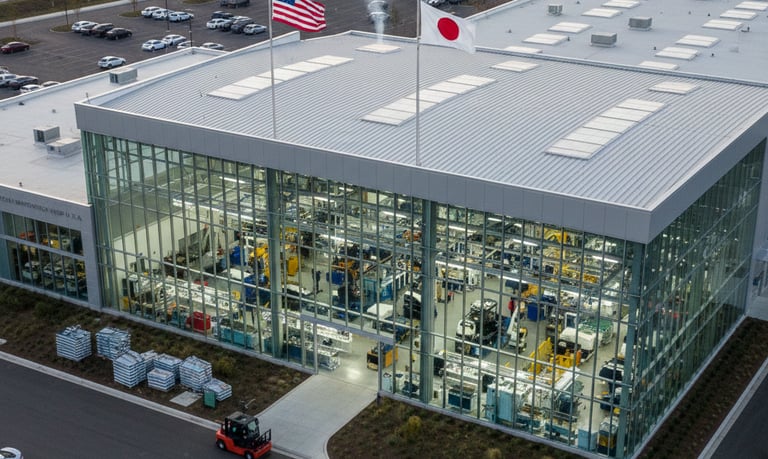SEC Commissioner Sounds Alarm on ESG Overreach While Japan Pours Billions Into U.S. Industry
FINANCE


A major shift just hit U.S. markets: a top regulator issued a sharp warning at the exact moment a foreign partner quietly moved billions into America. The overlap wasn’t planned — but it may reshape how money, policy, and power collide over the next decade.
Japan Surges Into U.S. Manufacturing as SEC Warns Against Expanding ESG Rules
A senior SEC commissioner is pushing back against the rise of “stealth” ESG policymaking just as Japan becomes the number-one foreign investor in U.S. factories, energy projects, AI infrastructure, and advanced manufacturing. The timing creates a rare collision between regulatory restraint and a historic wave of allied capital flowing directly into sectors Washington wants to strengthen.
In remarks at a Japan–U.S. capital markets symposium, Commissioner Mark Uyeda warned that regulators should not use ambiguous concepts like “reputational risk” or political pressure to force companies into non-financial objectives. Instead, he urged agencies to stick to financial materiality — the longstanding principle that disclosures should be tied to investor-relevant information, not broad social policy.
A Shift Away From ESG as a Regulatory Tool
Uyeda argued that the growing trend in policymaking — using ESG terminology to shape corporate behavior indirectly — risks turning financial regulation into a form of industrial policy. ESG can matter when tied to concrete financial outcomes, he said, but not when used as a catch-all framework to push companies toward objectives that lack measurable investor relevance.
ESG — shorthand for environmental, social, and governance standards — has been used in recent years to guide corporate disclosures and investment strategies.
Europe is already retreating from some of its most sweeping sustainability mandates. Uyeda suggested the U.S. should avoid replicating that mistake at a moment when global capital is watching regulatory clarity closely.
Japan Quietly Becomes America’s Top Foreign Investor
The commissioner’s speech highlighted a striking economic trend: Japan is now the largest foreign direct investor in the United States, surpassing every other nation. Japanese capital is pouring into:
semiconductor fabrication
electric-vehicle batteries
logistics and industrial infrastructure
AI hardware, data centers, and advanced computing
critical minerals and energy projects
large-scale manufacturing facilities
These sectors align with U.S. national priorities — particularly supply-chain resilience, reindustrialization, and strategic technology competition.
Uyeda’s message implied that unpredictable ESG rulemaking could deter the very investment wave the U.S. is trying to attract.
Why the ESG Warning Matters Now
Uyeda’s position echoes growing concerns among institutional investors who fear expanding ESG mandates will increase compliance costs without improving financial disclosure quality. He emphasized that “reputational risk” should not serve as a pretext for pressuring firms into political objectives disguised as investor protection.
With Japanese companies expanding across U.S. industry — including multibillion-dollar commitments to manufacturing, chips, AI, and clean energy — regulatory clarity becomes a competitive advantage. Investors require predictable rules, not shifting compliance categories.
A Strategic Crossroads for U.S. Markets
Uyeda’s remarks mark a subtle but meaningful shift at the SEC. The emphasis is no longer on expanding ESG frameworks but on narrowing them to their original purpose: informing investors about financially material risks.
At the same time, Japan’s surge in capital investment gives the U.S. an opportunity to rebuild key sectors — but only if regulatory policy doesn’t create friction.
The message is clear:
If the U.S. wants to secure long-term investment in its core industries, it must avoid regulatory ambiguity at the precise moment its allies are stepping up.
